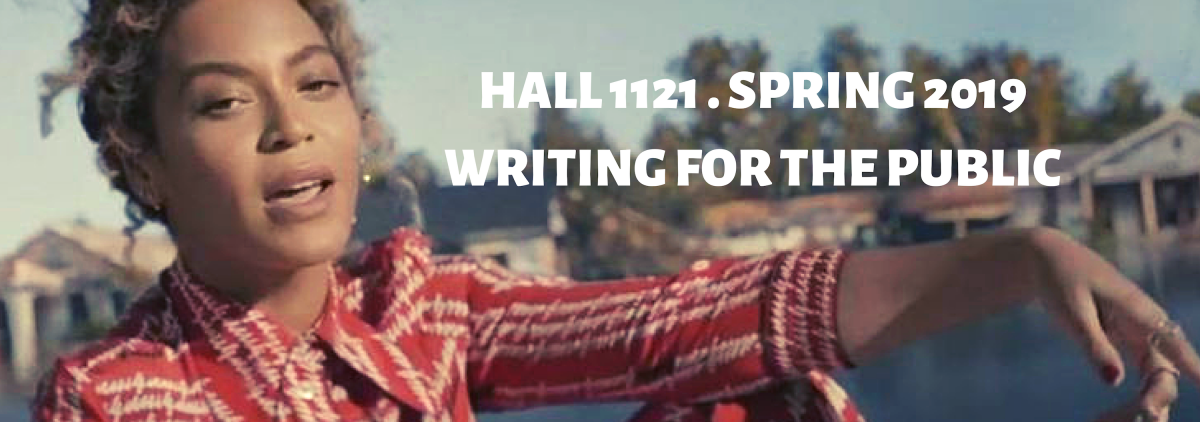UNIT FOUR: New Audience, New Genre
For this assignment, you will take something you have written this semester: Unit One (part one or two,) Unit Two or Unit Three, and repackage it for a totally new audience—and in a new genre that you think will best reach that audience.
What do you mean?
Maybe you want to reach pre-teens considering college, and therefore want to make a comic book about your educational experiences (or, alternately, if you are writing about “best teaching practices for an audience of educators, maybe you want to make a video of you giving a speech, or an informational brochure.) Maybe, if you did a puppet show about Kendrick Lamar for assignment #2 (anything’s possible!) you now want to reach a more traditional acadmic audience who may look down on him, comparing Kendrick to other Pulitzer prize winners and arguing that he DID, in fact, deserve his award. Any of these options are great.
My point here is that the assignment begins with audience: who are you trying to reach, what are you trying to tell them, and what is the best way to reach them? (More or less) anything goes, as long as it is appropriate to the audience and not offensive.
Some examples of genres we have looked at so far this semester:
- The Literacy Narrative
- The Academic Essay
- The Music Review
- The Lyrical Analysis
- The Position Paper
- The Spoken Word Poem
- The Video Essay (many types, in fact)
- The Informational Poster
- The Brochure
- The Persuasive Speech
- The Manifesto
- The How-To
- And more!
Grading Criteria:
You will largely get graded on: Appropriateness for your audience, Effectiveness of message, and care. What do I mean by this?
- Appropriateness for audience: Well, first of all, a puppet show is not appropriate for a city council meeting any more than a brochure is appropriate for a preschool class, so , in part, I’m talking about what genre you choose. But I am also talking about topic and diction. If we take the examples of the preschool and the city council meeting, it’s pretty easy to think about. Learning how to use the toilet isn’t a real city council topic, and commercial zoning laws aren’t a real preschool topic. Likewise, you would use different diction (and fonts, and pictures, and so on) with kids and with politicians. Usually.
- Effectiveness of message: This one is simple to explain, though not always simple to DO. Does your point get across to your intended audience?
- Care: This sounds pretty vague, because it’s going to vary by genre, but basically, this is how much of a finished product you turn in. If this is a more formal paper, or a children’s book, or a brochure for the city council, it should be relatively free of grammatical “error.” If you are writing in Brooklyn English, that’s fine (if it fits your audience, of course,) but you still need to be consistent and free of typos and your project needs to look good. In other words, you need to be able to explain why everything that’s on the page (or in the video, or on the webpage, or in the recording, etc) is THERE.



